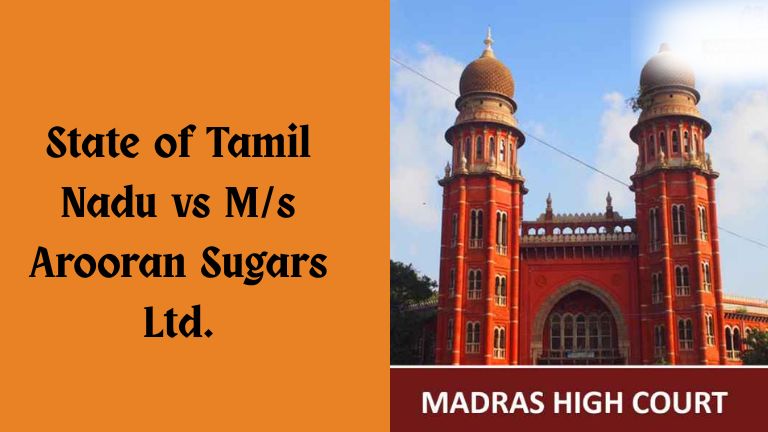
Case Stats
Case Title: State of Tamil Nadu vs M/s Arooran Sugars Ltd.
Case No: Civil Appeal No. 134 of 1980
Citation: (1996) 10 SC CK 0127
Date of Decision: 31-10-1996
Bench: Full Bench
Judges: S. Saghir Ahmad, N.P. Singh, M.M. Punchhi, M.K. Mukharji, Kuldip Singh
Acts Referred: Constitution of India (Articles 13, 14, 31), Tamil Nadu Land Reforms Act, 1961 and Amendments
Final Decision: Allowed
[Judgment Source]
https://www.courtkutchehry.com/Judgement/Search/AdvancedV2?docid=301058
Law Points Raised
1. Validity and scope of retrospective amendment to vesting date under the Tamil Nadu Land Reforms (Fixation of Ceiling on Land) Act.
2. Whether compensation should be calculated based on date of vesting as per original or amended provision.
3. Constitutionality of reducing compensation retrospectively (conflict with Article 14 and right to property).
Ratio Decidendi
The Supreme Court held that the retrospective amendment (Act 7 of 1974) which altered the vesting date from the date of notification to an earlier date (1.3.1972) was unconstitutional.
This amendment sought to deny the landowners fair compensation (at 9 times net income), by applying a lower rate (2 times) retrospectively, violating Article 14.
Final Ruling
The Supreme Court upheld the High Court's decision and ruled in favour of Arooran Sugars Ltd. The retrospective vesting under the amended Act 7 of 1974 was held invalid, and the company was entitled to compensation at the higher rate (9 times the net annual income), as per the law in force on 1.3.1972.
Key Paragraph References
- Paragraph 4–6: Background on vesting amendments and factual history.
- Paragraph 7–9: Legal challenge to retrospective amendment and subsequent reversal via Act 25 of 1978.
- Paragraph 10: High Court's reasoning.
- Paragraphs 8–10: Final ruling and implications on compensation.
Summary
This landmark case tested the limits of legislative power to amend laws retrospectively in a way that harms vested rights.
By restoring the original vesting date and compensation rate, the Supreme Court ensured landowners receive just and equitable treatment under Article 14 of the Constitution.